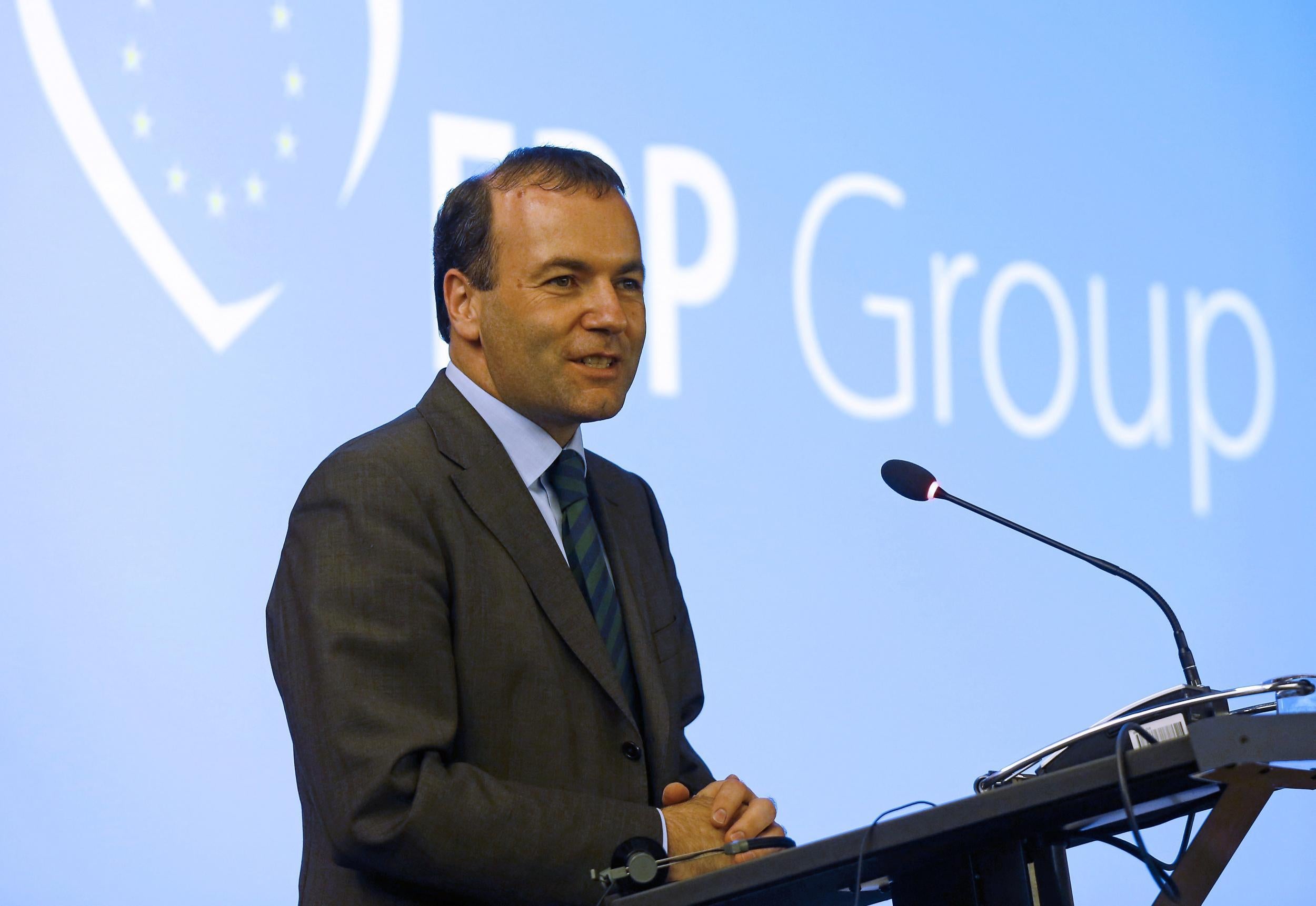Angela Merkel's top ally in Brussels launches campaign to replace Jean-Claude Juncker as EU president
German politician aims for EU top job

The most senior Brussels politician from Angela Merkel’s political alliance has launched a bid to become the next president of the European Commission.
Manfred Weber, who leads the largest group in the European Parliament, the centre-right EPP, said he would “bring Europe back to the people” if he was selected as its candidate in the upcoming elections.
Mr Weber, the most senior German MEP, is at a domestic level the member of Germany’s CSU political party – the Bavarian sister party that has been in alliance with Ms Merkel’s CDU since 1949.
He is entering a crowded field to win the candidacy for president, with EU chief Brexit negotiator Michel Barnier also thought to want the role.
Representatives from the 50 centre-right EPP parties in the EU will meet in Helsinki in November to decide who their lead candidate – or “spitzencandidate” should be for the 2019 European elections.
Whoever is picked as the EPP’s candidate is very likely to become the next Commission president as the EPP is expected to come top in the European elections in 2019.
Mr Weber’s candidacy is likely to face opposition from some parties on the grounds that he is a German politician – with many countries anxious about alleged German domination of the EU institutions.
Europe is at a turning point. The 2019 European elections will decide the future of the EU
“Europe is at a turning point. The 2019 European elections will decide the future of the EU,” Mr Weber said in a statement on social media.
“Today is about the self-assertion of Europe and the defence of our values, because we are being challenged from the outside and the inside. It’s about the survival of our European way of life.
“We cannot go on as we are now in the EU. I will help bring Europe back to the people and re-establish the bond between citizens and the European Union. I want to kick start a new chapter in the EU.
“I want to become the EPP's lead candidate for the 2019 European Elections and be the next President of the European Commission. Europe needs a new beginning and more democracy.”

In recent months Mr Weber has taken a tough rhetorical line on immigration and migration, in an apparent bid to position himself for the role. In January he was forced to apologise for a comment in which he called for a “final solution to the refugee question”. He later said he regretted the choice of words after it was pointed out that they resembled a Nazi slogan.
The European Commission president is chosen through a convoluted process based on the most recent set up European Parliament election results. The European Council votes by weighted qualified majority for a candidate, taking into account the results of the elections.
In 2014 this meant picking the “lead candidate” from the group which won the biggest candidate at the elections – in that case the EPP. The lead candidate system is however a convention rather than law, and is disputed, and it is not clear to what extent it will be followed in the next set of election in 2019.
The European Parliament must approve or veto any appointment put to it by the Council by a simple majority, usually following a grilling by a parliamentary committee.
Though the CSU are close allies of Ms Merkel’s CDU, in recent months the two parties have been locked in a dispute about migration policy. Populists from the right are expected to make gains during the elections, mirroring victories at a national level since the last round of EU polls.
Join our commenting forum
Join thought-provoking conversations, follow other Independent readers and see their replies
Comments
Bookmark popover
Removed from bookmarks